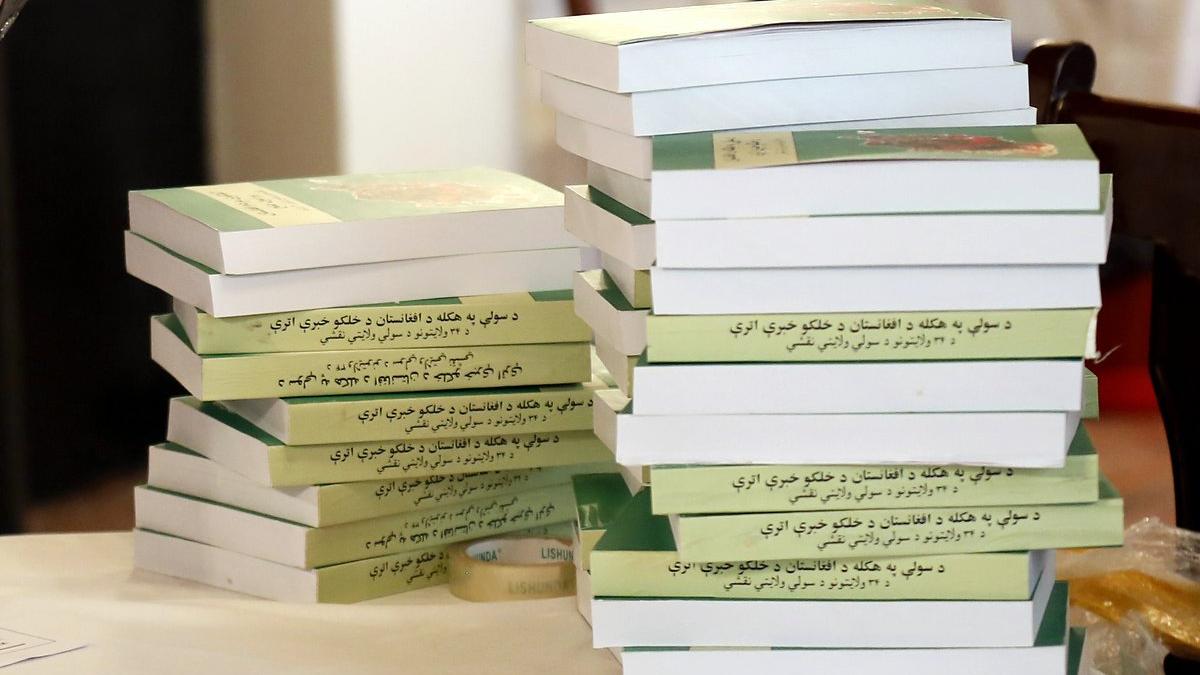KANDAHAR - After nation-wide consultations on peace among ordinary Afghans from across the country, all documented in a new book, community leaders in Kandahar met at a UN-backed event to discuss possible next steps toward building a more stable and prosperous country.
The recently published book, titled “34 Roadmaps of the Afghan People’s Dialogue,” is a distillation of the consultations involving more than 6,000 people – a third of whom were women. It details Afghan views on peace, reconciliation, human rights, gender equality and economic development.
During the event in Kandahar’s capital, which drew civil society representatives, human rights defenders and other community leaders, participants discussed plans for implementing the recommendations made in the book.
“There is a need for advocacy on peace so that we are able to change the perceptions of ordinary people, in positive ways,” said one participant. “Human rights defenders and other activists should continue to raise awareness about the recommendations of the book while engaging with communities and government institutions.”
In the lively discussion, those attending the symposium identified areas where peace and stability could be achieved in the southern province, including through expedited justice, good governance, human rights, the elimination of fraud and corruption, and taking measures against the ongoing drought.
They also discussed the need to protect civil society members and human rights defenders who are taking further steps in their advocacy work and in raising public awareness about the importance of peaceful resolution to local-level conflict.
At the event’s conclusion, the participants jointly resolved to carry the discussion forward among their respective communities in future events and engagements. And the 11 female participants also resolved to carry on further dialogue concerning women’s meaningful participation in peace initiatives.
The province of Kandahar is situated in Afghanistan’s southern region, which borders Iran and Pakistan, and is populated mainly by rural communities that rely on agriculture as their primary source of income.
The book, “34 Roadmaps of the Afghan People’s Dialogue,” was produced by a steering committee of 11 civil society groups along and the High Peace Council, with the support of UNAMA’s Human Rights team.
In May, at the book’s launch in Kabul, Fahim Hakim, a steering committee member and adviser to the Afghanistan Independent Human Rights Commission, said that the book should serve as a benchmark for future peace planning and for policymakers.
“People from all walks of life participated in these dialogues, including teachers, farmers, religious leaders, commanders and youth,” said Hakim.
Speaking at the book’s launch event in Kabul, the UN Secretary-General’s Special Representative for Afghanistan, Tadamichi Yamamoto, said that the book conveys “a strong consensus” among people on the need for a political solution to ending the conflict and the critical role that civil society should play in peace mediation and reconciliation.
The event in Kandahar was organized by UNAMA’s Kandahar regional office. Similar events are scheduled to take place across the country as part of a countrywide outreach programme to create platforms – using radio, television, and social media – for Afghans to engage in dialogue and discuss critical issues affecting their communities.
UNAMA is mandated to support the Afghan Government and the people of Afghanistan as a political mission that provides 'good offices' among other key services. 'Good offices' are diplomatic steps that the UN takes publicly and in private, drawing on its independence, impartiality and integrity, to prevent national and international disputes from arising, escalating or spreading.
UNAMA also promotes coherent development support by the international community; assists the process of peace and reconciliation; monitors and promotes human rights and the protection of civilians in armed conflict; promotes good governance; and encourages regional cooperation.






